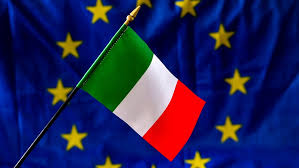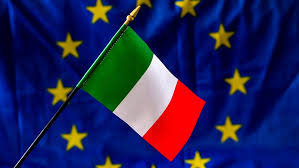
The opposition of the European Union against the plans of the Italian government to borrow more money for an already heavily indebted economy in its next budget was supported by the International Monetary Fund.
A warning was issued to Italy by the Washington-based lender that the government should follow the financial rules and guidelines of the EU or else face the possibility of opposition of investors which could result in a debt default.
A budget deficit of 2.4% of the GDP is being targeted by Italy’s populist coalition for next year which is three times of the target set by the previous government. The current government has pledged to spend more even as the debt of the country reaching about 130% of the GDP which is the largest in the eurozone after Greece.
The plan of the Italian government to increase its budget deficit has been opposed by the EU. Budget deficit is the difference between the government income from taxes and the spending by the government.
The executive arm of the EU – the EU commission, would review the Italian budget after it is submitted with it by 15 October to ascertain whether the budget is within the guidelines and rules of the EU. The Italian government wants to spend more to spur investment and consumer spending to kickstart economic growth.
Given the impending possibility of a trade war and the possibility of a hard Brexit, it is important to uphold the confidence of international money markets, said Maurice Obstfeld, the chief economist at the IMF.
And therefore in the current unstable economic climate, it is important for government to abide by the EU regulations that prevent governments from too much borrowings so that the debt to GDP ratio, Obstfeld said.
“Our concern about Italy is that there is a real imperative for the fiscal policy to maintain the confidence of markets. And we have seen the [government bond yield] spreads increase over the past months. This has certainly contributed to our downgrade of Italian growth and makes the economy more susceptible to shocks,” he said speaking to reporters in Bali, Indonesia.
“So we think it is important that the government operate within the framework of the European rules, which are also important for the stability of the eurozone itself.”
The fact that the Italian government had plans to increase the budget deficit top 2.4 percent next year was confirmed by Italian finance minister, Giovanni Tria, on Tuesday. However the minister said that he wanted to begin “constructive discussions” with the EU and ensure that there is a calm “tone” in the deliberations.
“Although so far there hasn’t been an explosion as some feared, we are of course worried,” Tria said. “As a responsible government, we aim to explain the budget and thus guide investors in our meetings in order to calm markets.”
(Source:www.theguardian.com)
A warning was issued to Italy by the Washington-based lender that the government should follow the financial rules and guidelines of the EU or else face the possibility of opposition of investors which could result in a debt default.
A budget deficit of 2.4% of the GDP is being targeted by Italy’s populist coalition for next year which is three times of the target set by the previous government. The current government has pledged to spend more even as the debt of the country reaching about 130% of the GDP which is the largest in the eurozone after Greece.
The plan of the Italian government to increase its budget deficit has been opposed by the EU. Budget deficit is the difference between the government income from taxes and the spending by the government.
The executive arm of the EU – the EU commission, would review the Italian budget after it is submitted with it by 15 October to ascertain whether the budget is within the guidelines and rules of the EU. The Italian government wants to spend more to spur investment and consumer spending to kickstart economic growth.
Given the impending possibility of a trade war and the possibility of a hard Brexit, it is important to uphold the confidence of international money markets, said Maurice Obstfeld, the chief economist at the IMF.
And therefore in the current unstable economic climate, it is important for government to abide by the EU regulations that prevent governments from too much borrowings so that the debt to GDP ratio, Obstfeld said.
“Our concern about Italy is that there is a real imperative for the fiscal policy to maintain the confidence of markets. And we have seen the [government bond yield] spreads increase over the past months. This has certainly contributed to our downgrade of Italian growth and makes the economy more susceptible to shocks,” he said speaking to reporters in Bali, Indonesia.
“So we think it is important that the government operate within the framework of the European rules, which are also important for the stability of the eurozone itself.”
The fact that the Italian government had plans to increase the budget deficit top 2.4 percent next year was confirmed by Italian finance minister, Giovanni Tria, on Tuesday. However the minister said that he wanted to begin “constructive discussions” with the EU and ensure that there is a calm “tone” in the deliberations.
“Although so far there hasn’t been an explosion as some feared, we are of course worried,” Tria said. “As a responsible government, we aim to explain the budget and thus guide investors in our meetings in order to calm markets.”
(Source:www.theguardian.com)





